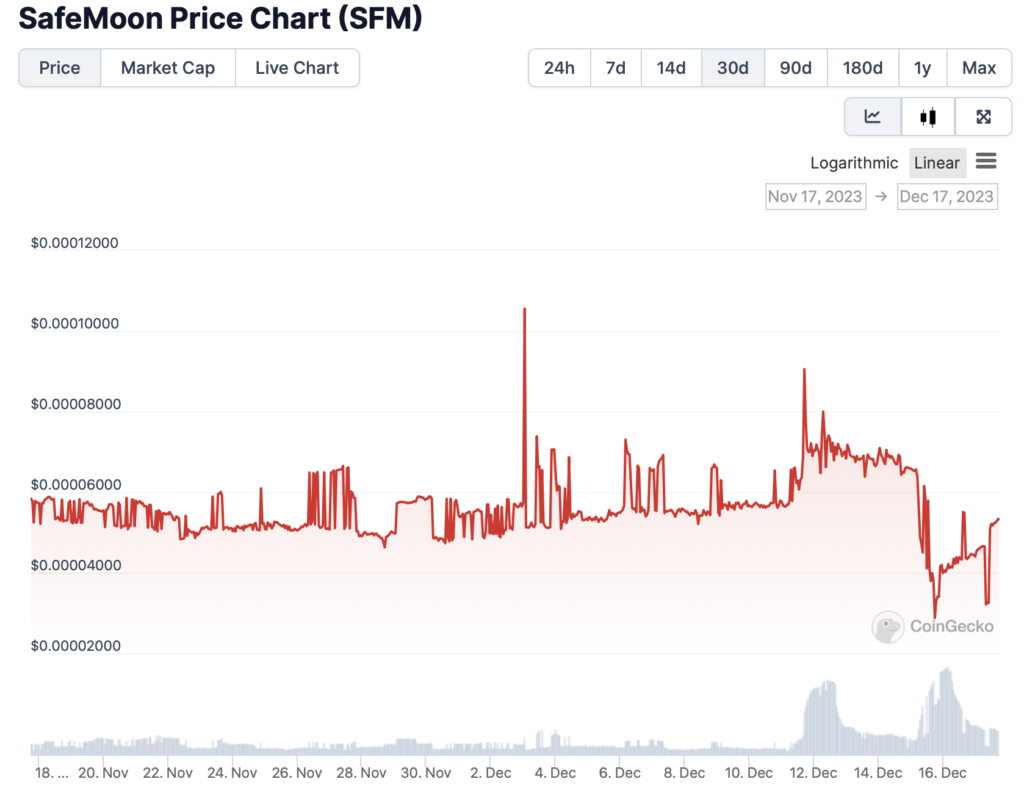Blockchain firm SafeMoon has opted to file for Chapter 7 bankruptcy, following the indictment of its founder and two top executives on fraud charges in November. The decision comes as CEO Braden Karony, CTO Thomas Smith, and founder Kyle Nagy face legal scrutiny over alleged violations of securities laws.
JUST IN: SafeMoon officially files for Chapter 7 Bankruptcy.
— Watcher.Guru (@WatcherGuru) December 14, 2023
According to a recent document, the crypto company voluntarily initiated the Chapter 7 bankruptcy process over a month after the trio was accused of engaging in fraudulent activities. The charges specifically relate to allegations that Karony and Smith misled investors by falsely asserting that assets held in SafeMoon’s liquidity pools were inaccessible to any party other than themselves.
However, investigations revealed that all three had the capability to withdraw funds from these pools. At the time of the accusations, Nagy was still evading law enforcement.
The Department of Justice (DOJ) has leveled serious charges against the executives, including conspiracy to commit wire fraud, conspiracy to commit money laundering, and conspiracy to commit securities fraud. The DOJ contends that the trio utilized approximately $200 million of their clients’ funds to fund personal expenses, such as real estate and high-end vehicles.
Simultaneously, the U.S. Securities and Exchange Commission (SEC) has filed a lawsuit against the trio, accusing them of orchestrating a substantial crypto fraud scheme through unregistered sales of their native digital asset, SFM. The SEC alleges, “Defendants promised to take the price of the token ‘Safely to the moon,’ but instead of delivering profits, they wiped out billions in market capitalization, withdrew crypto assets worth more than $200 million from the project, and misappropriated investor funds for personal use.”
In response to these legal challenges, SafeMoon filed for Chapter 7 bankruptcy on Thursday. The filing, made in the Utah Bankruptcy Court, discloses that the company has between 50 and 99 creditors, assets ranging from $10 million to $50 million, and debts ranging from $100,000 to $500,000.
Unlike Chapter 11 bankruptcies, which involve restructuring and relaunching, Chapter 7 typically leads to the liquidation of the debtor’s assets to repay creditors.
The impact of these developments is evident in the market, as the price of SFM has experienced a significant decline.

SafeMoon’s financial woes and legal troubles have further raised concerns within the crypto community, emphasizing the need for transparency and regulatory adherence in the burgeoning digital asset industry. The situation continues to evolve, with Nagy still charged but not yet apprehended by authorities.
Information for this briefing was found via The Daily Hodl, CoinDesk, and the sources mentioned. The author has no securities or affiliations related to this organization. Not a recommendation to buy or sell. Always do additional research and consult a professional before purchasing a security. The author holds no licenses.









